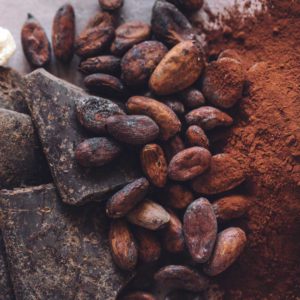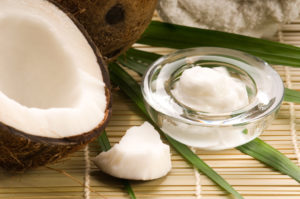From the point of view of nutrition, there are no such concepts as “superfood” or “superfood”. This term was coined for marketing purposes to influence trends in the promotion of a certain type of food and to promote their sales.
The food industry assigns the label “Superfood” to nutrient-rich products with potential properties to positively affect human health. However, despite the fact that many foods can be described as Superfoods, it is important to understand that there is NO single food product that is the key to good health and a universal means of disease prevention.
Improving health through healthy eating is more than just focusing on a couple of popular foods on the market at the moment – killer doses of avocado, almond milk or lemon won’t make you Superman, but they can do a lot of harm.
Healthy functioning of the body is best maintained by eating a variety of nutritious foods every day. And that’s why including some (or all) of the foods we’ve listed below in a balanced daily diet, plus moderate exercise can really benefit your health.
So, here’s a list of natural Superfoods to be friends with
Dark leafy greens
Dark green leafy vegetables are an excellent source of nutrients including folate, zinc, calcium, iron, magnesium, vitamin C and fiber. Including greens in the daily diet can reduce the risk of cardiovascular diseases and prevent the development of type 2 diabetes. Leafy greens also contain high levels of anti-inflammatory compounds known as carotenoids, which may protect against some cancers.
Top Superfoods among dark greens include:
Turnip leaves
Leafy greens are often bitter, and not everyone likes it. However, the problem is solved by light heat treatment (for example, the shard is perfect, steamed and sprinkled with olive oil). You can get creative by adding small amounts of greens to your favorite soups, salads, smoothies, roasts, and gravies.
Berries
Berries are a natural vitamin bomb plus an excellent source of minerals that improves the condition of the gastrointestinal tract due to the presence of fiber and antioxidants. The strong antioxidant capacity of berries is associated with a reduced risk of heart disease, cancer and other inflammatory conditions.
If you enjoy them for breakfast, dessert, salad or make smoothies with them, you’re already well done! Just don’t overdo it with sugar
The most useful common berries include:
- raspberry
- cranberry
- blueberry
- blackberry
- strawberry
Green tea
Originally from China, green tea is a drink with a low caffeine content, which has a wide range of medicinal properties. Green tea is rich in antioxidants and polyphenol compounds that have a strong anti-inflammatory effect. One of the most common antioxidants in green tea is epigallocatechin gallate, or EGCG. It gives green tea its apparent ability to protect us from chronic diseases, including heart disease, diabetes and cancer.
Studies also show that the combination of catechins and caffeine in green tea may make it an effective weight-loss agent. Although the greatest effect of green tea for weight loss can be achieved, as is known, only if you climb the mountains and collect it yourself 🙂
Garlic
Garlic is a popular culinary ingredient for its distinctive flavor, but it has also been used for centuries for its healing properties. Garlic is a good source of manganese, vitamin C, vitamin B6, selenium and fiber. This spicy plant can be effective in lowering cholesterol and blood pressure, as well as in supporting the immune function of the body, and as a prevention of some types of cancer.
However, don’t get carried away. Garlic in large quantities can cause problems with the gastrointestinal tract and heart rhythm. The norm recommended by the World Health Organization is 2-5 g of garlic per day (approximately 1 clove). This amount is enough to strengthen the body, improve blood circulation, reduce pressure and increase general tone.

Olive oil
What it is most valued for is its high level of monounsaturated fatty acids and polyphenolic compounds. The oil also contains antioxidants, such as vitamins E and K, which can protect cells from oxidative stress. Adding olive oil to your diet can reduce inflammation and the risk of certain diseases, such as heart disease and diabetes.
Don’t forget to buy quality virgin vegetable oils. And yes, the phrase Extra Virgin in the name was also invented by marketers, and there is no internationally confirmed classification of vegetable oils of this class.
Ginger
Ginger root contains antioxidants such as gingerol, which are responsible for many of the claimed health benefits associated with this superfood. Ginger can be effective in treating nausea and reducing pain syndromes from acute and chronic inflammatory conditions, reduces the risk of developing heart disease, and also fights dementia.
Ginger is usually available on the market fresh, in the form of oil or juice, as well as dried in roots or ground. It is easy to add to soups, French fries, sauces and teas.
Turmeric (Curcumin)
Curcumin has powerful antioxidant and anti-inflammatory effects and is the subject of most research related to turmeric. Turmeric is potentially effective in the treatment and prevention of cancer, heart disease and diabetes. It also helps heal wounds and reduce pain syndromes.
The disadvantage of using curcumin for medicinal purposes is that it is difficult for the body to absorb, but the absorption of turmeric can be improved by combining its use with vegetable oils or other spices, such as black pepper.
Avocado
It is rich in numerous nutrients, including fiber, vitamins, minerals and healthy fats. Like olive oil, avocados are high in monounsaturated fats. Oleic acid in avocados is associated with reducing inflammation in the body. Eating avocado can reduce the risk of cardiovascular diseases, diabetes and metabolic syndrome.
Since avocado is a high-calorie product, doctors advise to consume no more than one piece per day twice a week. In principle, the prices for this product … remotely echo medical recommendations
Eggs
Eggs are a priori a historically controversial topic in the field of nutrition due to their high cholesterol content, but they are still one of the healthiest foods.
Despite concerns surrounding egg consumption and increased cholesterol levels, studies show that patients with cardiovascular disease and diabetes did not experience significant increases in cholesterol when consuming 6-12 eggs per week.
Whole eggs are rich in many nutrients, including, of course, protein, B vitamins, choline, selenium, vitamin A, iron and phosphorus. Eggs contain two powerful antioxidants, zeaxanthin and lutein, which are known to support eye health.
Beans
Legumes have been awarded the status of superfoods because they are a rich source of B vitamins, various minerals, proteins and fiber. Studies show that they have many health benefits, including treating type 2 diabetes and lowering blood pressure and cholesterol. Regular consumption of legumes can also help maintain a healthy weight, thanks to their ability to improve satiety.
However, let’s not forget that this is a rather heavy food for the stomach, and it is recommended to consume it in moderate quantities no more than twice a week, not forgetting to add spices that improve digestion processes (turmeric, asafetida, curry leaves, various types of pepper, etc. )
Nuts and seeds
Nuts and seeds are rich in fiber, vegetarian protein and heart-healthy fats. The plant compounds contained in them improve the condition of the heart, have anti-inflammatory and antioxidant properties that can protect the body’s cells from oxidative stress.
The most popular superfood nuts and superfood seeds:
- almonds
- pecans
- pistachios,
- walnuts
- cashews
- Brazilian nuts
- macadamia nuts.
- pumpkin seeds, chia, flax and hemp.
Algae
Seaweed is a term used to describe certain nutrient-rich sea vegetables that have long been used in Asian cuisine but have become very popular in other parts of the world in the last decade.
Sea vegetables are a source of unique biologically active compounds that are not usually present in vegetables on land, and have an antioxidant effect. For example, vitamin K, folate and iodine.
Masale suggests starting to get acquainted with wakame
Kefir (and yogurt)
Kefir is a fermented drink made from milk that contains protein, calcium, B vitamins, potassium and probiotics. Kefir is similar to yogurt, but has a thinner consistency and generally contains more probiotic strains than yogurt.
Fermented, probiotic-rich foods have several associated health benefits, including lowering cholesterol, lowering blood pressure, improving digestion, and anti-inflammatory effects.
Although kefir is traditionally made from cow’s milk, it is usually well tolerated by people with lactose intolerance due to the fermentation of lactose by bacteria. However, it is also made from non-dairy drinks such as coconut milk, rice milk and coconut water. However, a certain amount of essential nutrients is contained in dairy products of animal origin. But here it is a matter of choice and preferences of each of us.
You can buy kefir and yogurt or prepare them yourself. If you choose a ready-made product, remember the presence of sugar and preservatives in them.
Mushrooms
Some of the most common varieties of edible mushrooms:
- mushrooms
- portobello
- shiitake
- mushrooms.
Thanks to their unique antioxidant abilities, mushrooms can play a role in reducing acute inflammation in the body. And although the nutritional content varies depending on the type of mushroom, they all contain vitamin A, potassium, fiber and a certain set of antioxidants that are not found in most other foods.
Interestingly, the consumption of mushrooms is associated with a high consumption of vegetables in general, which contributes to an overall more nutritious diet. And for many vegetarians, mushrooms are one of the main alternatives to meat.
Another feature of mushrooms is that they are grown using agricultural waste, which makes mushrooms a sustainable component of a healthy food system.
Take a conscious approach to nutrition, exercise regularly, wash your hands properly and stay healthy!
The article uses information from the resource: National Center for Biotechnology Information









